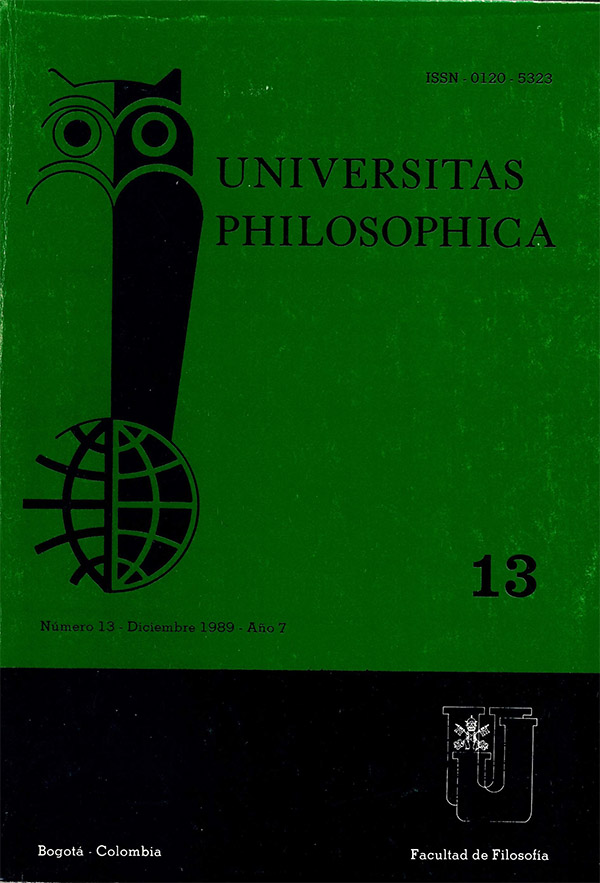Abstract
Ignacio Ellacuría se movió intelectualmente con gran propiedad en varios campos de la realidad latinoamericana. Pero los fundamentos teóricos de toda su producción intelectual deben buscarse en su filosofía. La fuente primaria de su inspiraciónfilosófica se halla en la obra de su amigo y maestro Xavier Zubiri. El objeto central del pensamiento de Ellacuría fue la realidad latinoamericana. Este artículo no pretende resumir toda la filosofía del autor estudiado. Se centra en sólo dos núcleos temáticos: a) la concepción que tiene Ellacuría del trabajo filosófico –más concretamente, del trabajo filosófico en la actual situación de América Latina– y b) aquellos conceptos metafísicos nucleares –presupuestos tanto en sus análisis de la realidad latinoamericana como en sus propuestas para transformar esa realidad- que subtienden toda la obra de este pensador.
Para Ellacuría la filosofía latinoamericana debe ser una filosofía liberadora, concebida por él con una profundidad poco común entre quienes solían abordar ese tema. Su metafísica se puede definir como un realismo materialista abierto. Los sillares de este pensamiento metafísico son la teoría de la inteligencia y la teoría de la realidad elaboradas por Zubiri. Ellacuría quiso hacer de su pensamiento filosófico una explicitación de las dinámicas y virtualidades "revolucionarias" subyacentes en la obra de Zubiri .
This journal is registered under a Creative Commons Attribution 4.0 International Public License. Thus, this work may be reproduced, distributed, and publicly shared in digital format, as long as the names of the authors and Pontificia Universidad Javeriana are acknowledged. Others are allowed to quote, adapt, transform, auto-archive, republish, and create based on this material, for any purpose (even commercial ones), provided the authorship is duly acknowledged, a link to the original work is provided, and it is specified if changes have been made. Pontificia Universidad Javeriana does not hold the rights of published works and the authors are solely responsible for the contents of their works; they keep the moral, intellectual, privacy, and publicity rights.
Approving the intervention of the work (review, copy-editing, translation, layout) and the following outreach, are granted through an use license and not through an assignment of rights. This means the journal and Pontificia Universidad Javeriana cannot be held responsible for any ethical malpractice by the authors. As a consequence of the protection granted by the use license, the journal is not required to publish recantations or modify information already published, unless the errata stems from the editorial management process. Publishing contents in this journal does not generate royalties for contributors.


